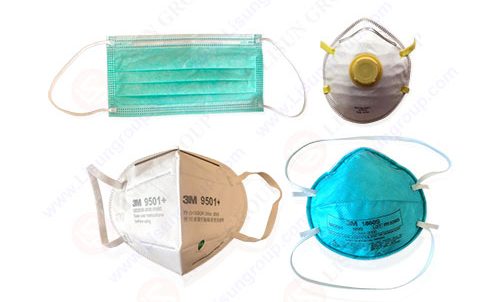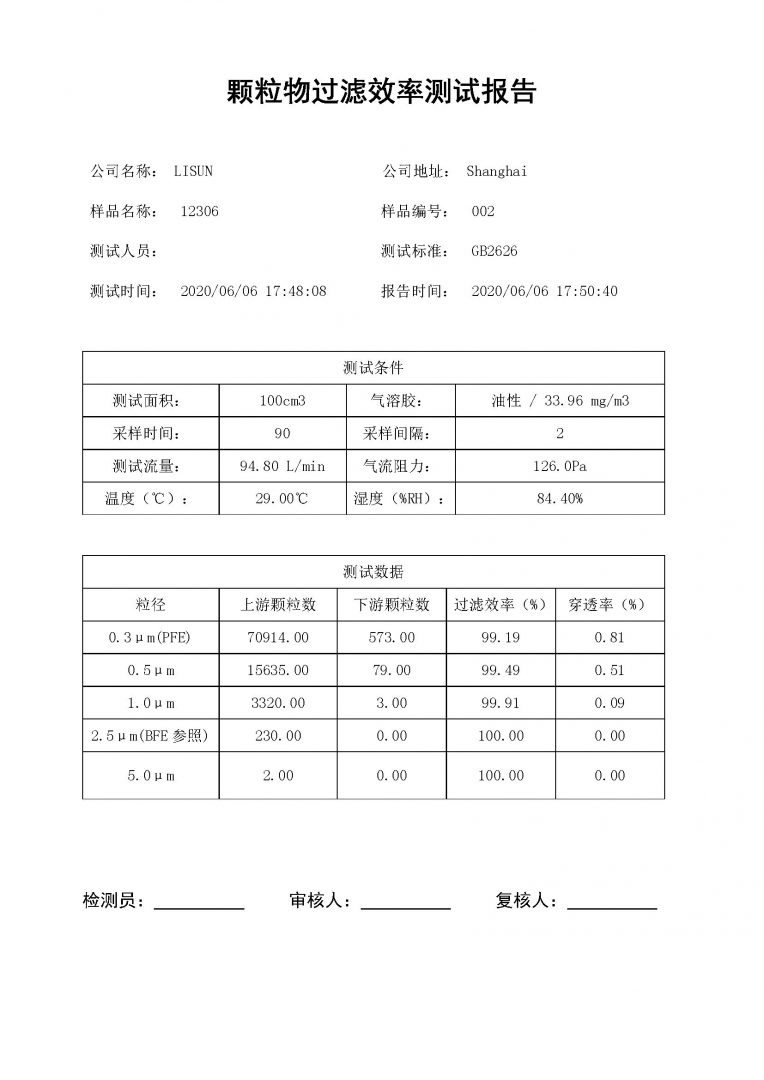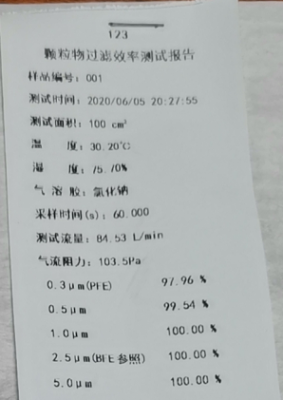Product No: GLE-20
GLE-20 is an oil-salt two-in-one Face Masks Particulate Filtration Efficiency PFE Tester. It is designed ccording to ASTM F1862-17, ASTM F2299-03 (2017), ASTM F2100-2019, BS EN14683-2019, BS EN 14387-2004+A1 2008, BS EN 136-1998, BS EN 140-1999, BS EN 143-2000 +C1-A1, BS EN 149-2001+A1, etc. It is used to test the particulate filtering efficiency of daily protective masks and medical masks, and to determine the obstruction performance of ordinary fabrics and medical protective masks against a constant flow of airflow. It is widely used for medical device inspection centers, safety protection inspection centers, labor protection inspection centers, drug inspection centers, disease prevention and control centers, textile testing centers, hospitals, mask manufacturers, etc.

Standard:
ASTM F1862 “Standard Test Method for Resistance of Medical Face Masks to Penetration by Synthetic Blood (Horizontal Projection of Fixed Volume at a Known Velocity)”
ASTM F2299 “Standard Test Method for Determining the Initial Efficiency of Materials Used in Medical Face Masks to Penetration by Particulates Using Latex Spheres”
ASTM F2100 “Standard Specification for Performance of Materials Used in Medical Face Masks”
BS EN14683 “Medical face masks. Requirements and test methods”
BS EN 14387 “Respiratory protective devices. Gas filter(s) and combined filter(s). Requirements, testing, marking”
BS EN 136 “Respiratory protective devices. Full face masks. Requirements, testing, marking”
BS EN 140 “Respiratory protective devices. Half masks and quarter masks. Requirements, testing, marking”
BS EN 143 “Respiratory protective devices. Particle filters. Requirements, testing, marking”
BS EN 149 “Respiratory protective devices. Filtering half masks to protect against particles. Requirements, testing, marking”
EN 1822-3 “High efficiency air filters (EPA, HEPA and ULPA) – Part 3: Testing flat sheet filter media”
GB 2626 “Respiratory Protective Equipment Self-Suction Filter Anti-Particle Respirator”
GB / T 32610 “Technical Specifications for Daily Protective Masks”
GB / T 19082 “Technical requirements for medical disposable protective clothing”
GB / T 19083 “Technical Requirements for Medical Protective Masks”
GB 24539 General technical requirements for protective clothing and chemical protective clothing
YY 0469 “Technical Requirements for Medical Surgical Masks”
YY / T 0969 “Standard for disposable medical masks”
Standard Requirement:
Using sodium chloride particles to detect KN filter elements, and use dioctyl phthalate or equivalent oil particles (or paraffin oil) to detect KP filter elements.
Test according to 6.3
During the test, the filtration efficiency of each sample should always meet the requirements of Table 2
Filtration efficiency
| Filter element category and level | Particle detection with sodium chloride | Detection with oil particles |
| KN90 | 90.0% |
Not Siut |
| KN95 | 95.0% | |
| KN100 | 99.97% | |
| KP90 |
Not Suit | 90.0% |
| KP95 | 95.0% | |
| KP100 | 99.97% |
Specification:
GLE-20 Characteristic:
Test Report (PDF Report and Result Receipt, can also print in English):


LISUN GLE-20 Face Masks Particulate Filtration Efficiency PFE Tester – After-sales Frequently Asked Questions (FAQ)
LISUN GLE-20 Face Masks Particulate Filtration Efficiency PFE Tester were in the market for more than 10 years, LISUN engineers service team already summary the most of the After Sales Questions and Answers in the above link. Please read it carefuly, you can solve the most of the problems by yourself if you have some questions while using the instruments. LISUN will be continue to update this pages and more FAQ can be found in this topic link.
